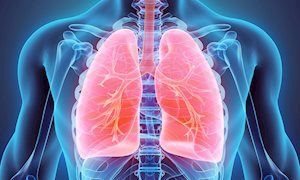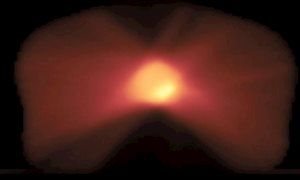26 June 2018
The breast stromal microenvironment is a pivotal factor in breast cancer development, growth and metastases. Although pathologists often detect morphologic changes in stroma by light microscopy, visual classification of such changes is subjective and non-quantitative, limiting its diagnostic utility. To gain insights into stromal changes associated with breast cancer, we applied automated machine learning techniques to digital images of 2387 hematoxylin and eosin stained tissue sections of benign and malignant image-guided breast biopsies performed to investigate mammographic abnormalities among 882 patients, ages 40–65 years, that were enrolled in the Breast Radiology Evaluation and Study of Tissues (BREAST) Stamp Project. Using deep convolutional neural networks, we trained an algorithm to discriminate between stroma surrounding invasive cancer and stroma from benign biopsies. In test sets (928 whole-slide images from 330 patients), this algorithm could distinguish biopsies diagnosed as invasive cancer from benign biopsies solely based on the stromal characteristics (area under the receiver operator characteristics curve = 0.962). Furthermore, without being trained specifically using ductal carcinoma in situ as an outcome, the algorithm detected tumor-associated stroma in greater amounts and at larger distances from grade 3 versus grade 1 ductal carcinoma in situ. Collectively, these results suggest that algorithms based on deep convolutional neural networks that evaluate only stroma may prove useful to classify breast biopsies and aid in understanding and evaluating the biology of breast lesions.
publication
Using deep convolutional neural networks to identify and classify tumor-associated stroma in diagnostic breast biopsies.
Ehteshami Bejnordi B, Mullooly M, Pfeiffer RM, Fan S, Vacek PM, Weaver DL, Herschorn S, Brinton LA, van Ginneken B, Karssemeijer N, Beck AH, Gierach GL, van der Laak JAWM, Sherman ME.
Nico Karssemeijer and Jeroen van der Laak are both members of theme Women's cancers. Bram van Ginneken is member of theme Rare cancers.
 According to a recent paper of Babak Ehteshami Bejnordi, Jeroen van der Laak and colleagues, deep learning based analysis of digitized microscopic images could accurately identify tumor-associated morphological alterations in the stroma neighboring breast cancer.
According to a recent paper of Babak Ehteshami Bejnordi, Jeroen van der Laak and colleagues, deep learning based analysis of digitized microscopic images could accurately identify tumor-associated morphological alterations in the stroma neighboring breast cancer.
The breast stromal microenvironment is a pivotal factor in breast cancer development, growth and metastases. Although pathologists often detect morphologic changes in stroma by light microscopy, visual classification of such changes is subjective and non-quantitative, limiting its diagnostic utility. To gain insights into stromal changes associated with breast cancer, we applied automated machine learning techniques to digital images of 2387 hematoxylin and eosin stained tissue sections of benign and malignant image-guided breast biopsies performed to investigate mammographic abnormalities among 882 patients, ages 40–65 years, that were enrolled in the Breast Radiology Evaluation and Study of Tissues (BREAST) Stamp Project. Using deep convolutional neural networks, we trained an algorithm to discriminate between stroma surrounding invasive cancer and stroma from benign biopsies. In test sets (928 whole-slide images from 330 patients), this algorithm could distinguish biopsies diagnosed as invasive cancer from benign biopsies solely based on the stromal characteristics (area under the receiver operator characteristics curve = 0.962). Furthermore, without being trained specifically using ductal carcinoma in situ as an outcome, the algorithm detected tumor-associated stroma in greater amounts and at larger distances from grade 3 versus grade 1 ductal carcinoma in situ. Collectively, these results suggest that algorithms based on deep convolutional neural networks that evaluate only stroma may prove useful to classify breast biopsies and aid in understanding and evaluating the biology of breast lesions.
publication
Using deep convolutional neural networks to identify and classify tumor-associated stroma in diagnostic breast biopsies.
Ehteshami Bejnordi B, Mullooly M, Pfeiffer RM, Fan S, Vacek PM, Weaver DL, Herschorn S, Brinton LA, van Ginneken B, Karssemeijer N, Beck AH, Gierach GL, van der Laak JAWM, Sherman ME.
Nico Karssemeijer and Jeroen van der Laak are both members of theme Women's cancers. Bram van Ginneken is member of theme Rare cancers.
Related news items

KWF grant for better selection of individuals and lung nodules in lung cancer screening
1 November 2021 The Dutch Cancer Society has awarded the consortium project ‘Multi-source data approach for Personalized Outcome Prediction in lung cancer screening’ with a grant of 1,425,000 Euro. Colin Jacobs will lead the work package on using artificial intelligence for accurate risk estimation of lung nodules. go to page
New start-up Patholyt will bring AI research into pathology diagnostics
21 September 2021 Patholyt is on a mission to accelerate the adoption of artificial intelligence in pathology diagnostics and improve the chances of cancer patients worldwide. Patholyt is a spin-off from Radboudumc, a frontrunner in computational pathology research. go to page
Image recognition for population-based lung cancer screening An interview with Bram van Ginneken
26 April 2021 Being able to automatically recognize lung tumors on CT scans: professor of functional image analysis Bram van Ginneken developed software within his Vici project that is now used worldwide. The resulting cost savings bring the introduction of a population-based lung cancer screening closer. go to page
PANCAIM aims to significantly improve diagnosis, prognosis and treatment of pancreatic cancer
10 March 2021 PANCAIM: A European consortium to improve pancreatic cancer treatment with artificial intelligence optimizing, integrating genomics and medical imaging. go to page
Radiation boost lowers risk of prostate cancer recurrence
21 January 2021 An additional external-beam radiation dose delivered directly to the tumor can benefit the prospects of men with non-metastatic prostate cancer, without causing additional side effects. The risk of relapse within five years for these men is smaller than for men who did not receive this boost. go to page
